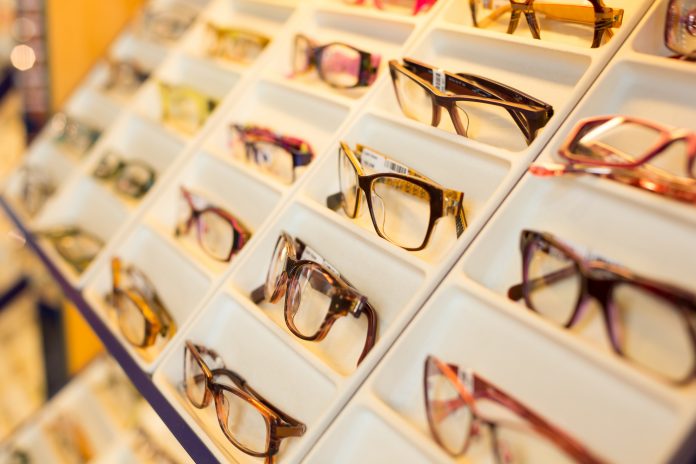Antonia Chitty, Head of Communications and IT at the Association of British Dispensing Opticians, provides insight into sustainable eyewear and eye care procurement
Have you ever thought about the plastics used in your spectacles or contact lenses? If you visit your local optician, is there a wall of sustainable eyewear for you to choose from? Sustainability is on the public agenda and here to stay, and opticians are adapting too.
Optical practice owners in the UK and beyond are considering becoming more environmentally friendly. One of the critical parts of this is sustainable procurement: ensuring that all practice supplies are as sustainable as possible. Read on to learn more about sustainable eyewear and eye care.
Kevin Gutsell is Vice President of the Association of British Dispensing Opticians (ABDO). He is part of the Association’s working group on sustainability and also runs Optical Centre Supplies Ltd (Centrostyle). He says, “Many of the issues surrounding sustainability are problems we’ve never really faced. The question is, where do we start? And I believe it starts with the people – get people behind you to set up the processes so they believe in the outcomes.” Kevin has been involved in ABDO’s Thinking Green campaign, which works with trade press and across social media to ensure every optician and optometrist is aware of the free resources ABDO has developed to help them become more sustainable. He has also participated in ABDO’s annual SEE Summit for the optical community. Bringing together professional bodies, manufacturers and suppliers, and individual practitioners, this event focuses on Social, Environmental and Economic factors in developing sustainable businesses, otherwise known as people, planet and profits. Kevin says, “What we saw from the SEE Summit is that most suppliers have a policy in how they obtain materials, how they package, how they transport and are aiming to become greener in their own right.”
Quizzing suppliers on sustainable eyewear and eye care
Optometrist Simon Berry has developed a questionnaire he uses with all his suppliers. It covers whether the supplier has its own environmental policy or any environmental or other certification. It asks about the traceability of materials and whether manufacturing conditions are humane and ethical. The questionnaire also looks at the source of materials in the product, whether the material is recyclable, and whether the manufacturer makes efforts to reduce the environmental impact of its packaging.
Implementing a questionnaire like this benefits businesses and helps answer patient questions. Simon says, “I think the best thing about starting to communicate sustainability findings with patients is that they may never have thought about the issues in our industry. It’s that slight change of mindset that will make the biggest difference in the long run.”
Acting on sustainable eyewear packaging
After reducing our carbon footprint, the reduction of waste is a vital issue. Packaging is an area where we can all see waste – but before they rush to put the packaging in the recycling bin, optical practice managers and suppliers are being encouraged to think about how to reduce it in the first place. The waste hierarchy illustration outlines how saying no to excess packaging is the first step. As a result, more and more practice owners are opening a dialogue with suppliers and asking them to think about how they package the products they send out. Suppliers are responding with a move away from single-use plastics and reducing any excess materials altogether.
Recycling frames and lenses
Consumer demand for recycling frames and lenses is growing. People want to see their local practice taking back items they have supplied. Several companies currently offer recycling boxes for optical practices, including:
• Recycline – spectacle frames and lenses.
• Refactory (formerly Reworked) – spectacle frames and lenses.
• Opticlean – dummy lenses.
• Terracycle – contact lenses.
You can explore each company’s website to see what they do with the plastics and, in some cases, metals that they reclaim.
Sustainable eyewear and eye care standards
“Sustainability is something all business should be aware of and more importantly acting upon,” says Tim Baker of BIB Ophthalmic Instruments. “BIB Ophthalmic instruments is conscious of and engaged in sustainability.
Parts of sustainability are touched upon in our ISO-9001 standards but there are now more detailed, more specific and more relevant standards that can be achieved. Quite often these standards are achieved by the manufacturer, rather than the UK distributor or wholesaler.” The Optical Suppliers Association (OSA) Sustainability Committee was formed to help members achieve better sustainability in their business practice along with a recognised accreditation that will also be evidenced based and maintained. Tim says, “This starts with appointment of a sustainability officer/representative. You can then go on to ask for the companies Sustainability or Environmental Policy Statement along with any accreditations, including those of manufacturers they represent.”
A message for optical practices
Kevin Gutsell has a message for optical practices to take on board: “You may not be here when the temperature rises. If you’re my age you may have seen glass bottles replaced by plastic ones, and the recent realisation that we may be better off using glass after all. We don’t know what will happen in the future, but we need to do our best for the planet, for our children and grandchildren. Don’t look back and wish you had made a change, make that change now.”











